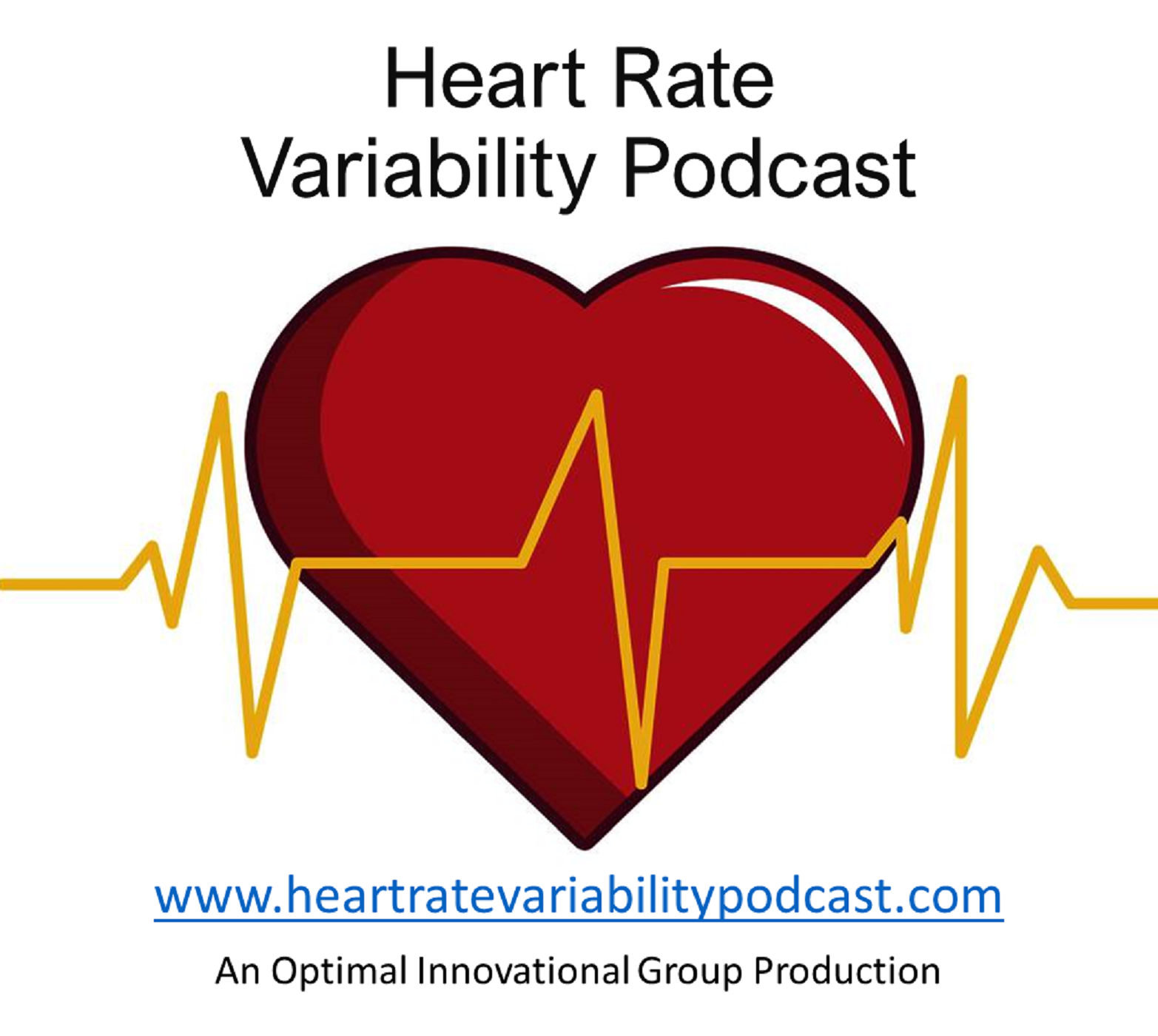

Heart Rate Variability Podcast
Optimal HRV
Welcome to the Heart Rate Variability Podcast where we discuss the research and applications of heart rate variability.
Episodes
Mentioned books

Sep 2, 2025 • 23min
200th Episode: Past, Present, and Future
We did it! 200 original episodes of the Heart Rate Variability Podcast. We celebrate with a look back and forward. Thank you for joining us on this journey!

Aug 28, 2025 • 57min
Stephanie White discusses her Innovative use of HRV Metrics
In this engaging conversation, Stephanie White, CEO of Measurable Resilience and expert in HRV biofeedback, shares how she helps individuals with chronic conditions using innovative HRV metrics like SDNN and CVNN. She emphasizes the critical role of heart rate variability in recovery and self-regulation. The discussion critiques traditional HRV research, advocating for better tracking tools. Stephanie also highlights the importance of personal resilience and continuous monitoring for improved health outcomes, offering actionable insights for listeners.

17 snips
Aug 21, 2025 • 45min
Dr. Erik Peper Discusses Pain and Pain Management
Dr. Erik Peper, a renowned authority on biofeedback and self-regulation from San Francisco State, dives deep into the multifaceted nature of pain. He discusses how psychological framing and cultural practices influence pain perception and management. Breathing techniques and mindful practices emerge as powerful tools for mitigating pain. Dr. Peper also shares insights on the mind-body connection, emphasizing the role of emotional support and meaningful activities in pain relief. His research invites listeners to rethink their approach to pain and wellness.

Aug 14, 2025 • 54min
Dr. Angele Mcgrady and Dr. Donald Moss talk HRV and Pathways Model
In this episode, Dr. Angele McGrady and Dr. Donald Moss join Matt Bennett to talk about how heart rate variability informs their Pathway Model. We discuss their new book: Pathways through Long-Term Health Conditions: Lifestyle Medicine to Maximise Your Wellbeing.

Aug 7, 2025 • 49min
Physician Deborah Borne talks HRV and Energy Medicine
In this episode, Dr. Deborah Borne returns to discuss how she has integrated energy medicine with her work as a physician. Deb and Matt Bennett explore the nature of energy medicine and the role HRV plays in measuring efficacy and supporting outcomes.

Jul 31, 2025 • 50min
Dr. Lynda Thompson Discusses the Synergy between HRV Biofeedback and Neurofeedback
Dr. Lynda Thompson, a psychologist and co-founder of the ADD Centre, shares her journey in non-drug ADHD treatments. She dives into her recent research on the synergy between HRV biofeedback and neurofeedback, emphasizing their combined benefits in mental health treatment. Lynda discusses the complexities of ADHD and how lifestyle factors influence therapy outcomes. She addresses parental concerns about medications, advocating for tailored, non-drug approaches that enhance emotional regulation through techniques like breathing exercises.

Jul 24, 2025 • 45min
Dr. Anu Kotay discusses her Journey and Work with HRV
In this episode, Anu Kotay joins Matt Bennett to discuss her career, heart rate variability, and how a team of innovative professionals integrates HRV into pain medicine within a large healthcare system.

Jul 17, 2025 • 56min
Dr. Heidi Hillman Discusses her Research on HRV Biofeedback to address Anger in Autistic Youth
In this episode, Dr. Heidi Hillman joins Matt Bennett to discuss her recent paper: Effectiveness of HRV Biofeedback in Decreasing Anger Among Adolescents With Autism Spectrum Disorder.

Jul 10, 2025 • 1h 2min
Dr. Judith Andersen discusses the International Performance, Resilience, and Efficiency Program (Replay)
In this episode. Dr. Judith Andersen and Matt Bennett discuss how she integrated heart rate variability and HRV Biofeedback into her work with police officers and the development of the International Performance, Resilience, and Efficiency Program.

Jul 3, 2025 • 29min
Joshua Marchant talks about his HRV Research Comparing Popular Breathing Practices (Replay)
Joshua Marchant, a clinical psychology student at BYU, dives into his fascinating research comparing various breathing techniques. He highlights how six breaths per minute significantly boosts heart rate variability more than square or 4-7-8 breathing due to resonance alignment. Marchant discusses adherence challenges and intriguing findings on CO2 levels and mood responses, suggesting clinical caution with techniques. He also calls for more inclusive future studies, leveraging AI to enhance biofeedback accessibility. A must-listen for anyone interested in mental health and breathing practices!


